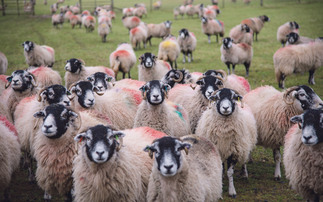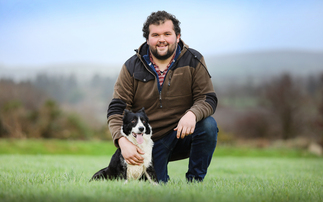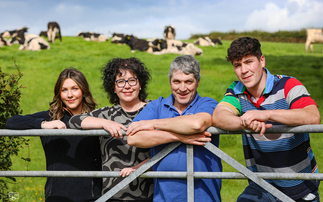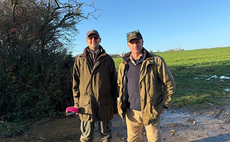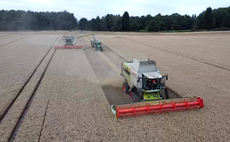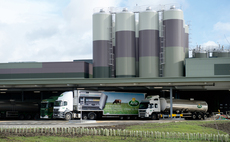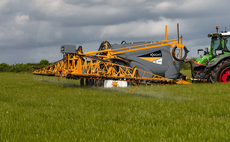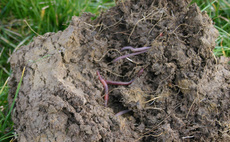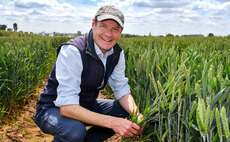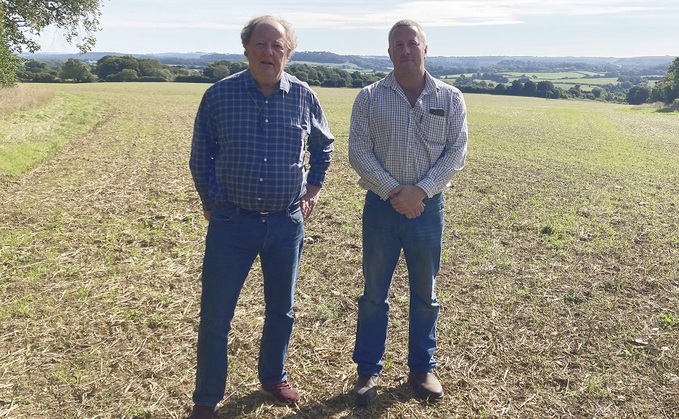
With the transition to environmental payments prompting farmers to tap into alternative income streams, AHDBs Farm Business Review service is helping one Wiltshire farmer add value to his farming operation. Mollie Leach reports.
For mixed farmer Paul Aldridge, of Pythouse Farm, Salisbury, Wiltshire, a deep dive into the business through the services Basic Payment Scheme (BPS) impact calculator, quickly identified the operation could recoup up to 30 per cent of losses incurred due to BPS cuts.
Farming across 375 hectares (927 acres), Mr Aldridge said the farms future ambitions to incorporate regenerative techniques meant the operation would be eligible for a range of soil options presented by the Sustainable Farming Incentive, with minimal changes to the farms systems approach. The farm is currently in its penultimate year of a 10-year Higher Level Stewardship scheme, set to terminate in November of next year.
Mr Aldridge said: BPS funding is vital for the business, so accessing support via this service and through one-to-one consultation with a trained AHDB adviser has been useful in understanding how we will need to diversify our income streams now and in the next five years.
Discussion
After discussion with Sarah Hurford, AHDBs knowledge exchange manager, the pair realised the business was able to regain about 23,000 via the grassland and arable soil standards.
Mr Aldridge said: Using the BPS calculator to take an initial look at the figures was reassuring and we now have a starting point going forwards.
But Ms Hurford added cultivating a mindset for change and innovation through scenario planning, in particular, would be instrumental if the business was to successfully navigate the shift in financial support.
Making use of the services Business Resilience Assessment, the pair worked to create a template to assess the different options and potential schemes which could add value to the operation.
Helping to map out a clear path for the business as it sets out on its regenerative journey, Mr Aldridge said: The service was a great way to unpack and further understand the market within which we are operating.
We currently grow wheat varieties for malting and milling, which is used for the creation of low nitrogen beer.
Through lengthy discussion with Ms Hurford, however, we realised there may also be scope to access more diverse outlets for any future crops we grow, in which case options such as forward selling or growing on contract could become possible.
Options
Assessing further options to make the business sheep enterprise work smarter with Ms Hurford, the pair identified potential gains by looking at its eligibility for a pasture-fed livestock certification scheme.
Requiring animals to have only eaten forage throughout their lives, the scheme could help to diversify outlets with limited changes to the operations current farming practices.
Mr Aldridge said: This could potentially open up options to supply livestock to local markets or retailers. Making use of Ms Hurfords expertise and advice has helped us to understand how cultivating a mindset for change goes hand in hand with various income streams, as we need to be able to adapt to access the raft of financial options available.
Making use of the services Key Performance Index express calculator, this mindset for change came sharply into focus as the pair unpacked how the business will remain profitable post-BPS.
Mr Aldridge said: We did not belong to any form of benchmarking group prior to using this service.
Using the indicator to compare our gross and net margins was therefore incredibly useful for taking a closer look at the farms performance against other farm enterprises.
Taking a closer look at the business production costs in line with the move towards a regenerative systems approach on-farm, the pair were able to delve into the enterprises 10-year regenerative plan.
Mr Aldridge said: The business performs very well at present, but it is clear when BPS is removed that profit will be minimal.
Changes
The calculator helped to demonstrate how the significant changes we are proposing with the move towards regenerative practices, such as increased direct drilling and the use of over-winter cover crops, could help to reduce production costs with the reduction of fertiliser and spray costs within the arable enterprise.
And with BPS payments on average accounting for 60 per cent of UK farm net income, taking a hard look at ways to shave input costs would be vital going forward.
Mr Aldridge said: I would highly recommend this service to anyone wanting to unpack the finer details of their operation. Farmers will need to be more innovative if they are to survive this agricultural transition and this service has helped me identify a clearer path when it comes to adding value to our operation.


PYTHOUSE FARM KEY BUSINESS FACTS
- Mixed farm consisting of 375 hectares (927 acres), made up of 160ha (395 acres) of non-intensive grass as rented or parkland; the remaining is arable land and Countryside Stewardship options.
- Variety of soil types, some heavy clay, silt loam, greensand, but mostly medium loams.
- Arable rotation includes winter wheat, spring barley, winter barley and oilseed rape and occasionally oats as a break crop; no grass is included within the rotation.
- Several of the crop varieties used have few market options, so forward selling is not routinely practiced.
- Cover crops are used whenever soils could be bare over winter, which include stubble turnips for sheep forage; mixes which can include a variety of species such as vetches, oats and linseed can be grazed or used as a green manure depending on fencing infrastructure.
- The farm has 660 North Country Mule ewes and 150 replacements (as not lambing ewe lambs) and 900 lambs (North Country Mule cross Texel/Charolais; used to cross to Suffolk), most of which are sold through ABP Yetminster or local markets.
- Farm operates a fairly min-till approach and is embarking on changes to the farm towards regenerative farming practices; the farm is GPS mapped and uses variable rate applications for fertiliser and targeted use of pesticides, focusing on issue areas, rather than field-scale applications.
- Most arable land is under a contract farming profit share agreement where contractors undertake field work and retain a profit share post-harvest.
- Henry Rumbold is one of three partners who owns the business and he has a majority share.
- Paul Aldridge has worked on the farm for 30 years and is on a self-employed basis, alongside his agronomy work.
AHDB Hub

For more projects from AHDB, visit the homepage.








